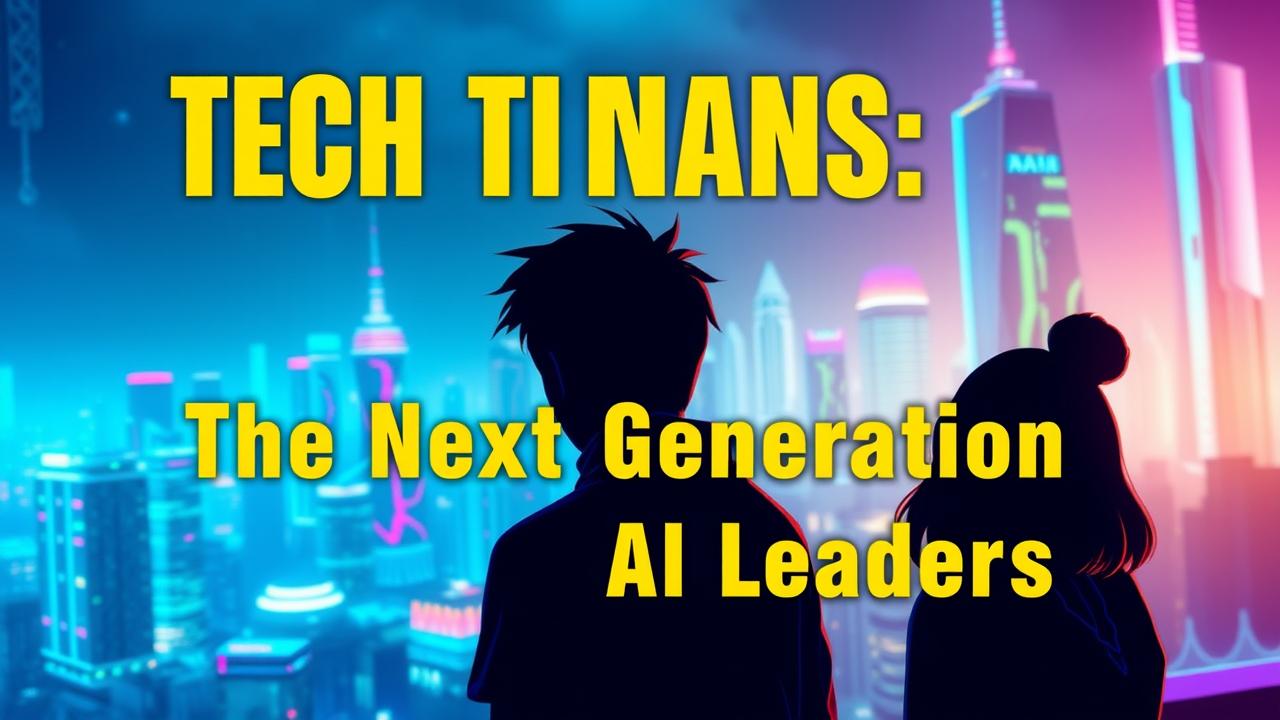Tech Titans: The Next Generation of AI Leaders
BY Md Thamidul Hasan Sakib - April 14, 2025

Tech Titans: The Next Generation of AI Leaders
The world is undergoing a profound transformation, fueled by the relentless advancement of Artificial Intelligence (AI). As AI technologies permeate every facet of our lives, from healthcare and finance to entertainment and transportation, a new breed of leaders is emerging. These individuals, the next generation of AI titans, are not just technologists; they are visionaries, strategists, and ethical advocates shaping the future of this powerful technology.
Who are these Future Leaders?
Identifying the exact individuals who will lead the AI revolution is, of course, impossible with absolute certainty. However, we can analyze the landscape and identify key characteristics and areas of influence. These future leaders are likely to possess a combination of the following attributes:
- Deep Technical Expertise: A strong foundation in computer science, machine learning, and related fields is essential. This involves understanding algorithms, data structures, and the latest advancements in AI research.
- Strategic Vision: The ability to see beyond the technical aspects and envision how AI can be applied across industries and solve global challenges.
- Ethical Awareness: A commitment to developing and deploying AI responsibly, with a focus on fairness, transparency, and accountability.
- Entrepreneurial Drive: A willingness to take risks, build teams, and bring innovative AI solutions to market.
- Communication Skills: The capacity to communicate complex technical concepts clearly to diverse audiences, from investors to policymakers.
Key Areas of Impact
The next generation of AI leaders will likely make significant contributions in these key areas:
- Healthcare: Developing AI-powered diagnostics, personalized treatments, and drug discovery tools.
- Finance: Creating more efficient and secure financial systems, including fraud detection and algorithmic trading.
- Transportation: Advancing autonomous vehicles and optimizing transportation networks.
- Sustainability: Developing AI solutions to address climate change, resource management, and environmental protection.
- Education: Personalizing learning experiences and improving educational outcomes.
The Importance of Ethical AI
As AI becomes more sophisticated, ensuring its ethical development and deployment is crucial. Future leaders must grapple with complex issues such as bias in algorithms, data privacy, and the potential for job displacement. They will need to advocate for responsible AI practices and work to build trust with the public.
The most important thing about AI is that it's no longer just a technology—it's a responsibility.
Nurturing the Next Generation
Cultivating future AI leaders requires a concerted effort from various stakeholders: education institutions, industry, and governments. This includes:
- Investing in AI education and research: Providing students with access to the latest tools, resources, and mentorship opportunities.
- Promoting diversity and inclusion in AI: Ensuring that AI teams reflect the diversity of the populations they serve.
- Creating a supportive ecosystem for AI entrepreneurs: Offering funding, mentorship, and access to resources to help startups thrive.
- Establishing clear ethical guidelines and regulations: Promoting responsible AI development and deployment.
- Fostering collaboration between academia, industry, and government: Facilitating the exchange of knowledge and expertise.
The rise of AI is one of the most transformative forces of our time. By empowering the next generation of AI leaders, we can ensure that this powerful technology is used to create a better future for all.
Subscribe Newsletter
Sign up for free and be the first to get notified about new posts.



